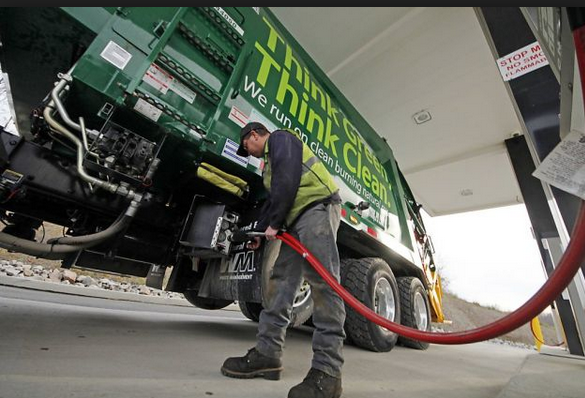Gas and Diesel Gallon Equivalents for CNG and LNG Considered
 A special steering committee of the National Conference on Weights and Measures (NCWM) is recommending that compressed and liquefied natural gas be sold in terms of gasoline and diesel gallon equivalents as opposed to units of mass, either pounds or kilograms.
A special steering committee of the National Conference on Weights and Measures (NCWM) is recommending that compressed and liquefied natural gas be sold in terms of gasoline and diesel gallon equivalents as opposed to units of mass, either pounds or kilograms.
The recommendation will be put to a vote this July at the 99th NCWM Annual Meeting in Detroit.
The adoption of uniform standards is important so that equipment manufacturers only have to meet one set of design requirements and retailers understand how to offer the product for sale in a way that allows consumers to compare prices.
Most U.S. consumers are accustomed to buying motor fuel in gallons. But natural gas isn’t metered the way gasoline and diesel are.
When a consumer fills up a vehicle with natural gas the dispenser is determining the weight of the product, not the volume. Proponents of the gallon-equivalent units of sale explain that the approach recognizes marketplace conditions including existing dispenser capabilities, consumer awareness and interest comparing alternative fuels with conventional fuels.
Others argue that the terminology of gallon equivalents would be establishing a new mass standard. It would also imply the ability to make comparisons of cost or quality between gasoline or diesel and natural gas, but that it is not really possible.
There is precedent for gallon equivalents.
About 20 years ago, NCWM adopted the gasoline gallon equivalent for compressed natural gas. It was debated heavily at the time and now with the introduction of liquefied natural gas some have called for a reversal of the earlier standard. Liquefied natural gas will serve as an alternative fuel source for heavy duty vehicles presently designed to burn diesel.
Category: Featured, Fuel & Oil, General Update










